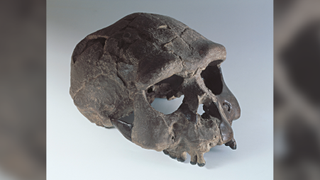
Kristina Killgrove
Kristina Killgrove is a staff writer at Live Science with a focus on archaeology and paleoanthropology news. Her articles have also appeared in venues such as Forbes, Smithsonian, and Mental Floss. Kristina holds a Ph.D. in biological anthropology and an M.A. in classical archaeology from the University of North Carolina, as well as a B.A. in Latin from the University of Virginia, and she was formerly a university professor and researcher. She has received awards from the Society for American Archaeology and the American Anthropological Association for her science writing.
Latest articles by Kristina Killgrove

Roos Carr figures: Creepy 2,600-year-old carvings with 'removable genitalia' and eyes that may have symbolized Odin's soothsayer powers
By Kristina Killgrove published
Spooky-looking wooden figurines with quartzite eyes are 2,600 years old and may be linked to a Norse god.
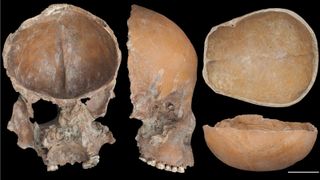
5,000-year-old skeleton masks and skull cups made from human bones discovered in China
By Kristina Killgrove published
Archaeologists in China found a collection of human bones that showed signs of being "worked" like any other natural material.
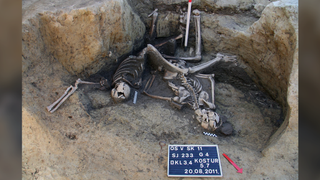
Skeleton-filled well in Croatia likely holds remains of Roman soldiers, study finds
By Kristina Killgrove published
Archaeologists have discovered a mass grave of Roman soldiers hidden inside an ancient well in Croatia.
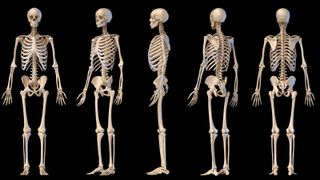
Human skeleton quiz: What do you know about the bones in your body?
By Kristina Killgrove published
Do you have what it takes to be a bone-ified quiz champion?
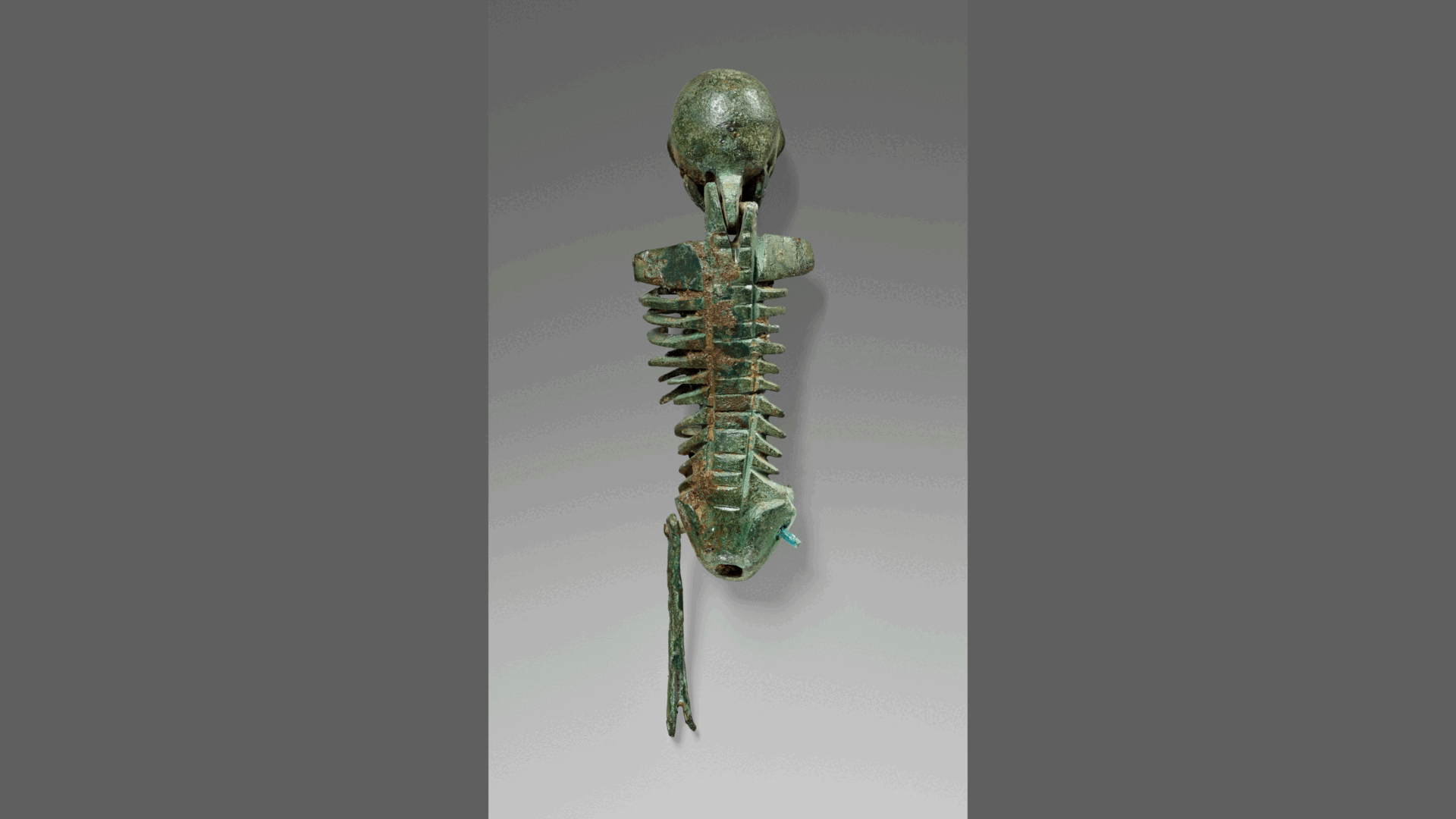
Miniature Skeleton: A ghostly 2,000-year-old party favor from a Roman banquet
By Kristina Killgrove published
This spooky skeleton was likely made to remind Roman banqueters that life is short.
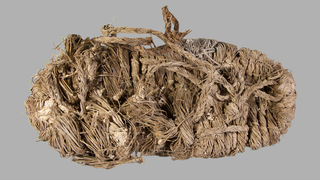
750-year-old grass shoe discovered in a vulture's nest in Spain
By Kristina Killgrove published
Bearded vultures in medieval Spain stole various things from humans to feather their nests.
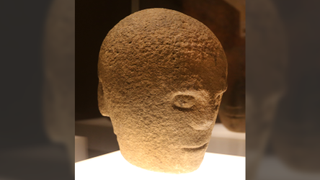
Corleck Head: A spooky three-faced Celtic sculpture found on the 'Hill of Death' in Ireland — and it may have been connected to human sacrifice 1,900 years ago
By Kristina Killgrove published
The meaning of the three-faced Corleck Head has puzzled experts for centuries.
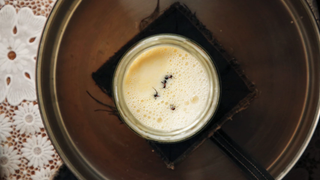
Anthropologists make 'ant yogurt' from centuries-old recipe, serve it as an 'ant-wich' at Michelin-star restaurant
By Kristina Killgrove published
Researchers have revealed how adding a handful of live ants to warm milk can create yogurt.

Scientists convert a kidney from blood type A to universal type O and implant it in a brain-dead recipient
By Kristina Killgrove published
Scientists move one step closer to "universal" donor organs with a successful kidney transplant in a brain-dead patient.
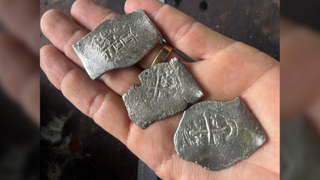
Divers recover more than 1,000 gold and silver coins from 1715 'Treasure Fleet' shipwreck in Florida
By Kristina Killgrove published
Salvage work on the 1715 shipwrecks brought over 1,000 coins to the surface this summer.

Jane Goodall, famed primatologist who discovered chimpanzee tool use, dies at 91
By Kristina Killgrove published
Dame Jane Goodall, the world's preeminent chimpanzee expert, died of natural causes.

Vlad the Impaler: The medieval prince who inspired Dracula
By Marc Lallanilla, Callum McKelvie, Jessie Szalay, Kristina Killgrove last updated
Vlad the Impaler was a medieval prince whose bloodthirsty acts inspired the world's most famous vampire, Bram Stoker's Dracula.
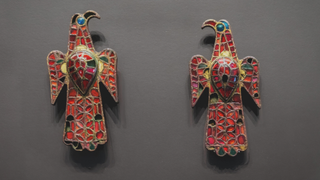
Eagle brooches: 1,500-year-old pins filled with dazzling gems and glass — and worn by powerful Visigoth women
By Kristina Killgrove published
Visigoth women may have worn eagle-shaped pins as a symbol of power.

How long does DNA last?
By Kristina Killgrove published
The world's oldest DNA comes from a 2.4 million-year-old ecosystem in Greenland. Will scientists eventually sequence even older DNA?
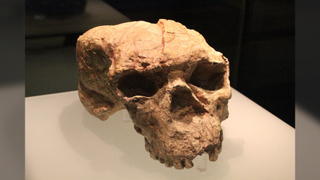
1 million-year-old skull from China holds clues to the origins of Neanderthals, Denisovans and humans
By Kristina Killgrove published
Reconstruction of a 1 million-year-old skull shows that early human groups split and diversified quickly.

Mystery creature found in 'forbidden cloud forest' of Peru is new species of marsupial
By Kristina Killgrove published
The newly described mouse opossum was discovered at a surprisingly high altitude in the Andes.
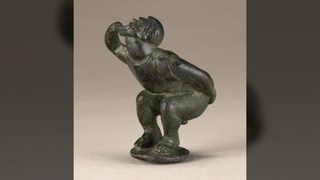
Statuette of a Comic Actor: A 2,000-year-old depiction of a Roman actor letting one rip
By Kristina Killgrove published
The ancient Romans had a soft spot for physical comedy (aka fart jokes), as exemplified by a bronze figurine of a comic actor.
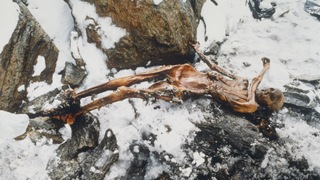
Ötzi quiz: What do you know about the Iceman mummy who was murdered 5,300 years ago in the Alps?
By Kristina Killgrove published
Think you know a lot about Ötzi the Iceman? Don't get left in the cold — take our quiz!
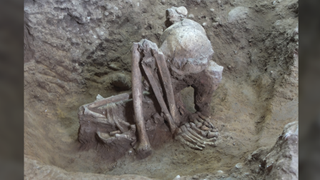
World's oldest mummies were smoke-dried 10,000 years ago in China and Southeast Asia, researchers find
By Kristina Killgrove published
The world's oldest evidence for purposeful human mummification comes from Southeast Asia, where people smoke-dried their ancestors' corpses 10,000 years ago.
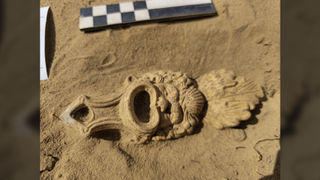
1,900-year-old oil lamp that provided 'light in the journey to the afterlife' found in Roman cemetery in the Netherlands
By Kristina Killgrove published
Archaeologists excavating in a Roman cemetery in the Netherlands have uncovered a unique oil lamp dating to the second century A.D.

Pawnee Star Chart: A precontact elk-skin map used by Indigenous priests to tell an origin story
By Kristina Killgrove published
The unique map depicts patterns of stars in the night sky, but its meaning is debated.
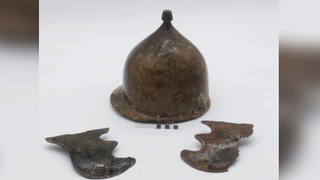
'Extraordinary' Roman helmet from war-ending battle found in the sea off Sicily
By Kristina Killgrove published
Archaeologists recovered the "Montefortino"-style helmet in an underwater excavation in the Aegadian Islands off the coast of Sicily.
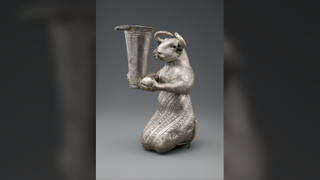
Kneeling Bull: A 5,000-year-old hybrid creature from Iran with a mysterious purpose
By Kristina Killgrove published
This silver bull figurine posing in a human-like manner may have been buried in a ritual to mark a temple boundary 5,000 years ago.
Get the world’s most fascinating discoveries delivered straight to your inbox.
